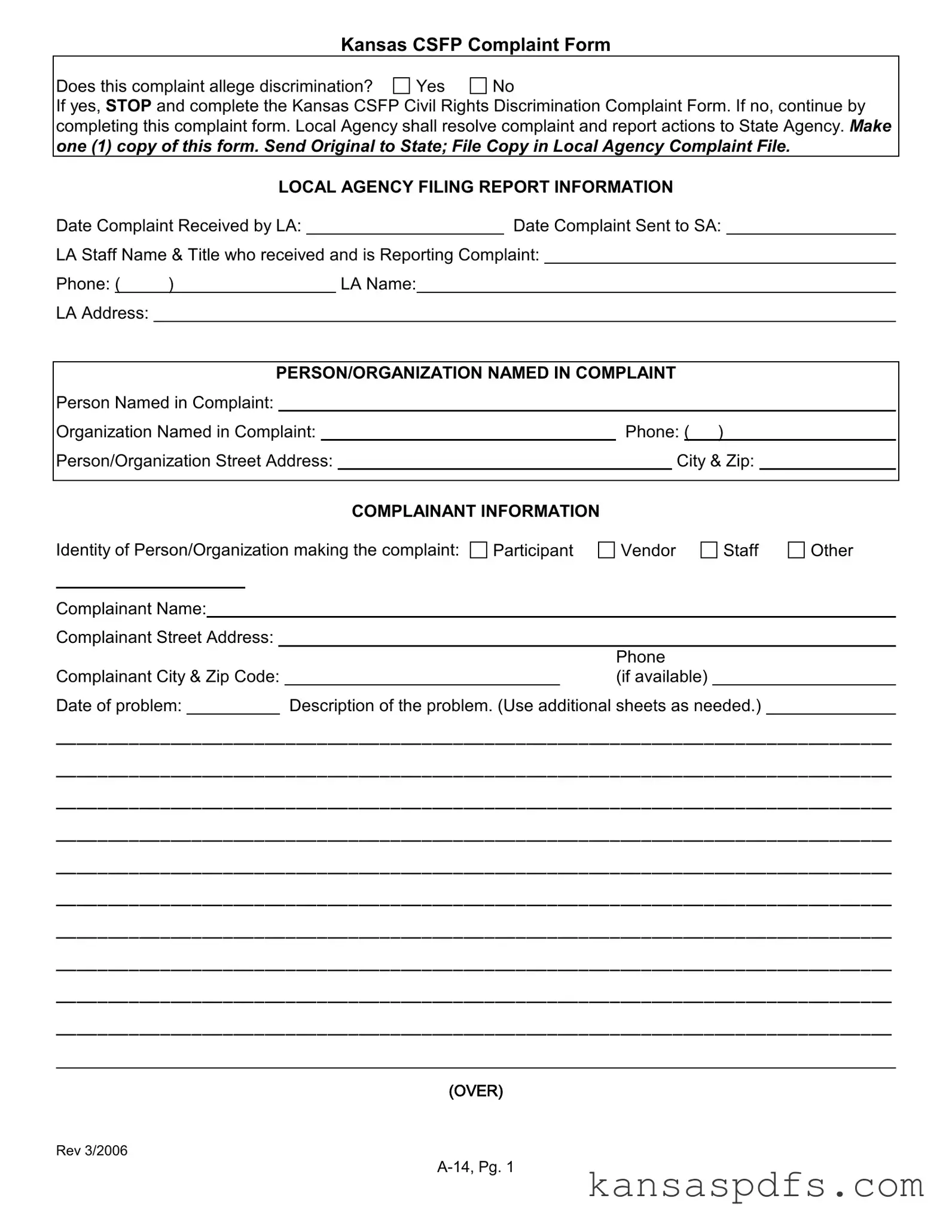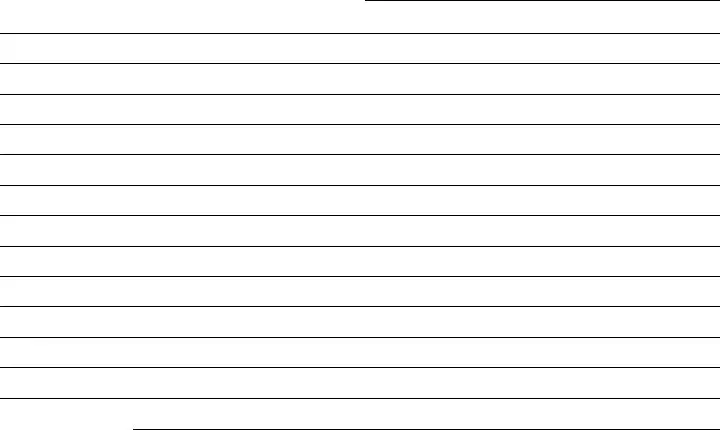What is the Kansas CSFP Complaint Form used for?
The Kansas CSFP Complaint Form is designed to report issues or complaints related to the Commodity Supplemental Food Program (CSFP) in Kansas. It's a way for participants, vendors, staff, or other relevant parties to formally report a problem they've encountered with the local agency managing the CSFP. By completing this form, individuals can ensure their concerns are officially documented and addressed by both the local and state agencies involved.
What should I do if my complaint is related to discrimination?
If your complaint is about discrimination, you should not use the standard CSFP Complaint Form. Instead, you are directed to stop and complete the Kansas CSFP Civil Rights Discrimination Complaint Form. This ensures that complaints regarding discrimination are handled appropriately and in accordance with civil rights regulations.
How is the complaint form processed?
Once a complaint is received by the Local Agency (LA), it is their responsibility to address and resolve the complaint. The form, along with a detailed report of the actions taken to resolve the issue, is then sent to the State Agency (SA) for review and record-keeping. The LA is also required to keep a copy in their local Complaint File. This process ensures that the complaint is handled at both the local and state levels, providing a thorough response to the issue raised.
Who can file a complaint using this form?
Any individual or organization encountering issues with the CSFP service or personnel, including participants, vendors, or staff, can file a complaint using this form. There's also an option to specify another category if the complainant's relationship to the program doesn't fall into one of these groups. This inclusivity ensures that anyone affected by the program's operation has a formal channel to report their concerns.
What information do I need to provide when filing a complaint?
When filing a complaint, you're required to provide detailed information, including the identity and contact information of both the complainant and the person or organization the complaint is against. You must also include a description of the problem and the date it occurred. Additional sheets can be attached if more space is needed to thoroughly describe the issue. This detailed information is vital for thoroughly investigating and resolving the complaint.
What happens after I submit the complaint?
After submitting the complaint, the Local Agency will take necessary actions to address and resolve the issue. A report of these actions, along with the original complaint, is sent to the State Agency for further review and filing. You may be contacted for additional information or clarification during this process. The goal is to resolve the complaint satisfactorily for all parties involved.
Is there a follow-up procedure after the complaint is resolved?
For State Agency use, there's a section on the form dedicated to follow-up actions. This may include details on how the complaint was resolved and any additional measures taken to prevent future problems. While the form itself does not specify follow-up procedures for complainants, individuals can inquire with the Local or State Agency for updates or outcomes regarding their filed complaint. This ensures transparency and closure for the complainant.



